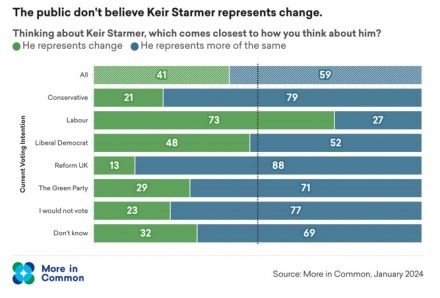“This conviction, and the closed nature of his trial, provide another stark example of the treatment of political dissenters in Russia. It is an overt attack on freedom of expression with the aim of silencing critical voices.”
Natalia Zviagina, Amnesty International’s director for Russia
Kate Hudson, Campaign for Nuclear Disarmament General Secretary, welcomes Amnesty International’s call for the release of Boris Kagarlitsky
Russian anti-war campaigner Boris Kagarlitsky, who was due to speak at our online rally on Saturday 24th February calling for an end to the war in Ukraine, has been imprisoned. The International Peace Bureau is sharing this report to raise awareness of Boris’s plight.
We welcome Amnesty International’s call for his immediate release and send him our solidarity greetings.
“A Russian military court of appeals has ordered socialist and anti-war dissident Boris Kagarlitsky to spend five years in jail, after prosecutors succeeded in overturning his original sentence of a ₽609,000 fine (about US$6700). The February 13 ruling also means Kagarlitsky will be banned from administering any website for two years upon his release.
Kagarlitsky’s original sentence was handed down on December 12 after he was found guilty of “justifying terrorism” over comments made in October 2022 in a since-deleted YouTube video and on his Telegram channel, regarding the bombing of the Crimea Bridge. The comments were brought to authorities’ attention by a local council member from President Vladimir Putin’s ruling United Russia party.
Prosecutors argued the fine was “unjust due to its excessive leniency” and demanded five and a half years’ jail instead as part of their appeal. They said Kagarlitsky had not cooperated with the investigation and could not afford to pay the fine, despite Kagarlitsky having agreed to testify from the outset and his fine having been paid in full.
Kagarlitsky’s supporters say the real reason for his jailing is his opposition to Putin’s war on Ukraine. As editor of the influential online leftist media platform Rabkor (Worker Correspondent), Kagarlitsky has been among the most high-profile opponents of the war — and one of the few to remain in Russia.
For this, Kagarlitsky was labelled a “foreign agent” by the Russian state back in May 2022. He told Green Left in August 2022 that this label is used to intimidate anti-war activists: “Everyone knows that the next step after being labelled a foreign agent is that you are put in jail, which is why many have left.”
“They have labelled me a foreign agent, I imagine with the intention of wanting me to leave, but I’m not going to leave.”
In a post to his Telegram channel shortly after the verdict, Kagarlitsky wrote: “I am sure that everything will be very good. And that we will see you again both on the channel and in freedom … We just need to live a little longer and survive this dark period for our country.”
Amnesty International’s director for Russia, Natalia Zviagina, said the verdict “is a blatant abuse of vague anti-terrorism legislation, weaponised to suppress dissent and punish a government critic.
“By targeting Boris Kagarlitsky, a distinguished sociologist known for his critical stance against government policies, the Russian authorities are showing, once again, their relentless assault on all forms of dissent.
“This conviction, and the closed nature of his trial, provide another stark example of the treatment of political dissenters in Russia. It is an overt attack on freedom of expression with the aim of silencing critical voices through fear and repression.
“This case is not an isolated incident but part of a broader, systematic effort to stifle opposition and control what can and cannot be said in Russia.
“Amnesty International calls for the immediate release of Boris Kagarlitsky and urges the international community to stand in solidarity against the silencing of critics and the ongoing erosion of human rights in Russia.””
Anti-War Socialist Boris Kagarlitsky Sentenced To Five Years’ Jail
By Frederico Fuentes February 14, 2024Source: Green Left

A Russian military court of appeals has ordered socialist and anti-war dissident Boris Kagarlitsky spend five years in jail, after prosecutors succeeded in overturning his original sentence of a ₽609,000 fine (about US$6700). The February 13 ruling also means Kagarlitsky will be banned from administering any website for two years upon his release.
Kagarlitsky’s original sentence was handed down on December 12 after he was found guilty of “justifying terrorism” over comments made in October 2022 in a since-deleted YouTube video and on his Telegram channel, regarding the bombing of the Crimea Bridge. The comments were brought to authorities’ attention by a local council member from President Vladimir Putin’s ruling United Russia party.
Prosecutors argued the fine was “unjust due to its excessive leniency” and demanded five and a half years’ jail instead as part of their appeal. They said Kagarlitsky had not cooperated with the investigation and could not afford to pay the fine, despite Kagarlitsky having agreed to testify from the outset and his fine having been paid in full.
Kagarlitsky’s supporters say the real reason for his jailing is his opposition to Putin’s war on Ukraine. As editor of the influential online leftist media platform Rabkor (Worker Correspondent), Kagarlitsky has been among the most high-profile opponents of the war — and one of the few to remain in Russia.
For this, Kagarlitsky was labelled a “foreign agent” by the Russian state back in May 2022. He told Green Left in August 2022 that this label is used to intimidate anti-war activists: “Everyone knows that the next step after being labelled a foreign agent is that you are put in jail, which is why many have left.”
“They have labelled me a foreign agent, I imagine with the intention of wanting me to leave, but I’m not going to leave.”
In a post to his Telegram channel shortly after the verdict, Kagarlitsky wrote: “I am sure that everything will be very good. And that we will see you again both on the channel and in freedom … We just need to live a little longer and survive this dark period for our country.”
Amnesty International’s director for Russia, Natalia Zviagina, said the verdict “is a blatant abuse of vague anti-terrorism legislation, weaponised to suppress dissent and punish a government critic.
“By targeting Boris Kagarlitsky, a distinguished sociologist known for his critical stance against government policies, the Russian authorities are showing, once again, their relentless assault on all forms of dissent.
“This conviction, and the closed nature of his trial, provide another stark example of the treatment of political dissenters in Russia. It is an overt attack on freedom of expression with the aim of silencing critical voices through fear and repression.
“This case is not an isolated incident but part of a broader, systematic effort to stifle opposition and control what can and cannot be said in Russia.
“Amnesty International calls for the immediate release of Boris Kagarlitsky and urges the international community to stand in solidarity against the silencing of critics and the ongoing erosion of human rights in Russia.” 














